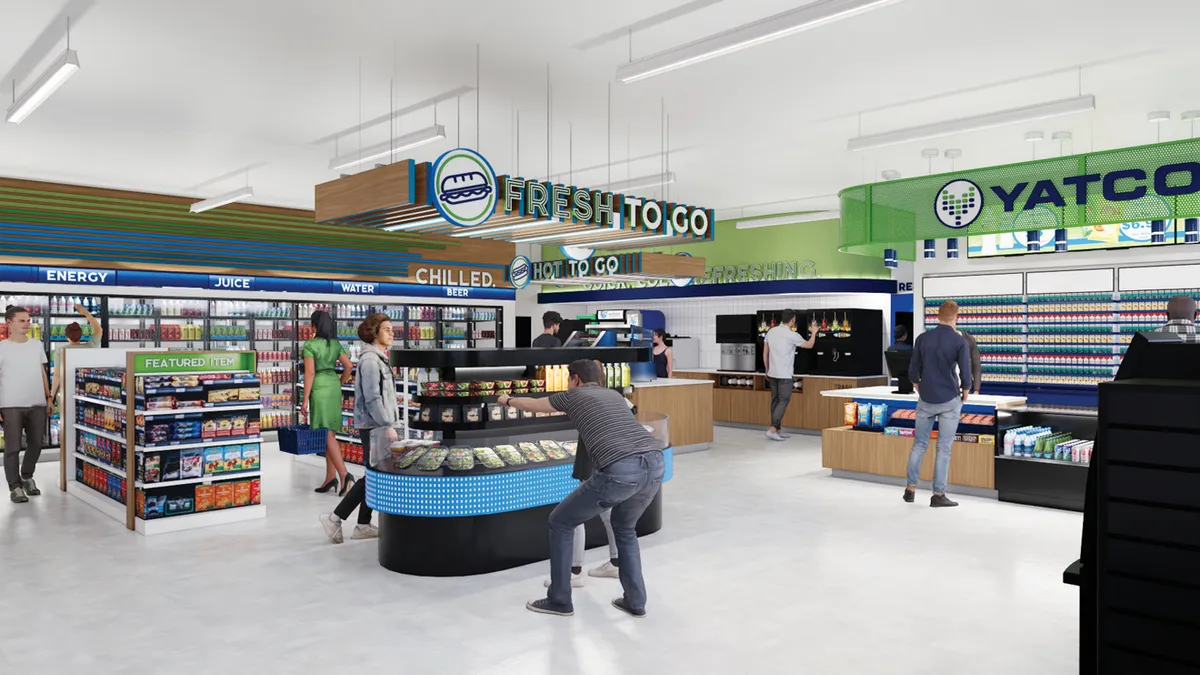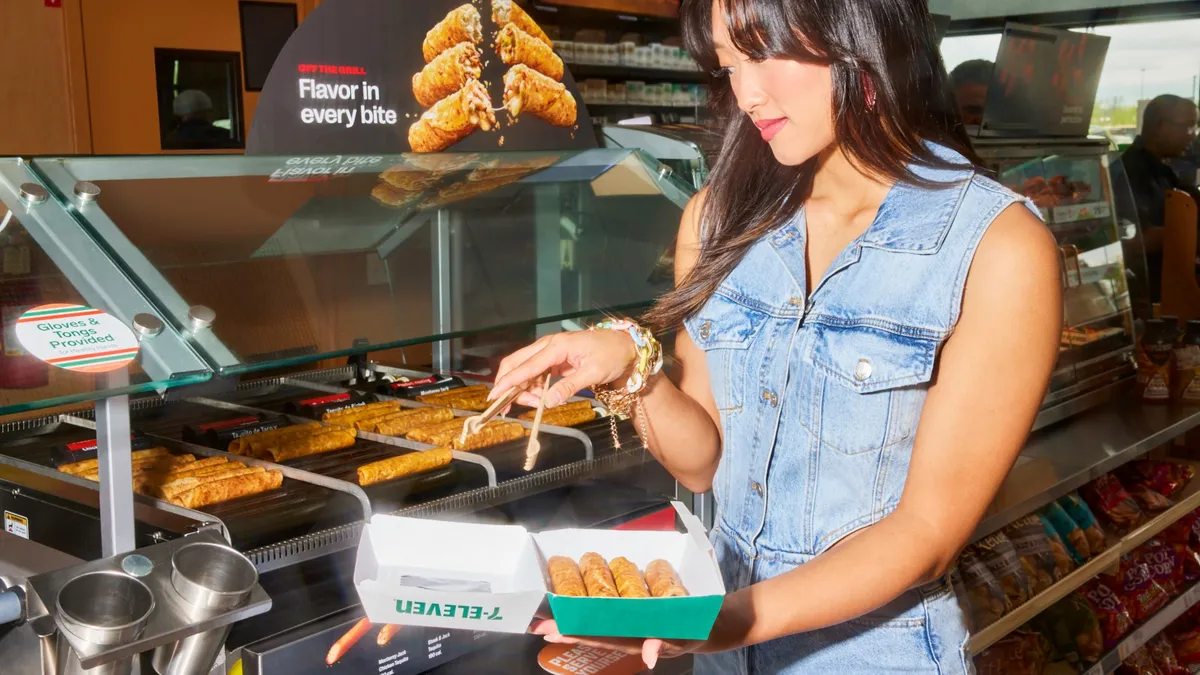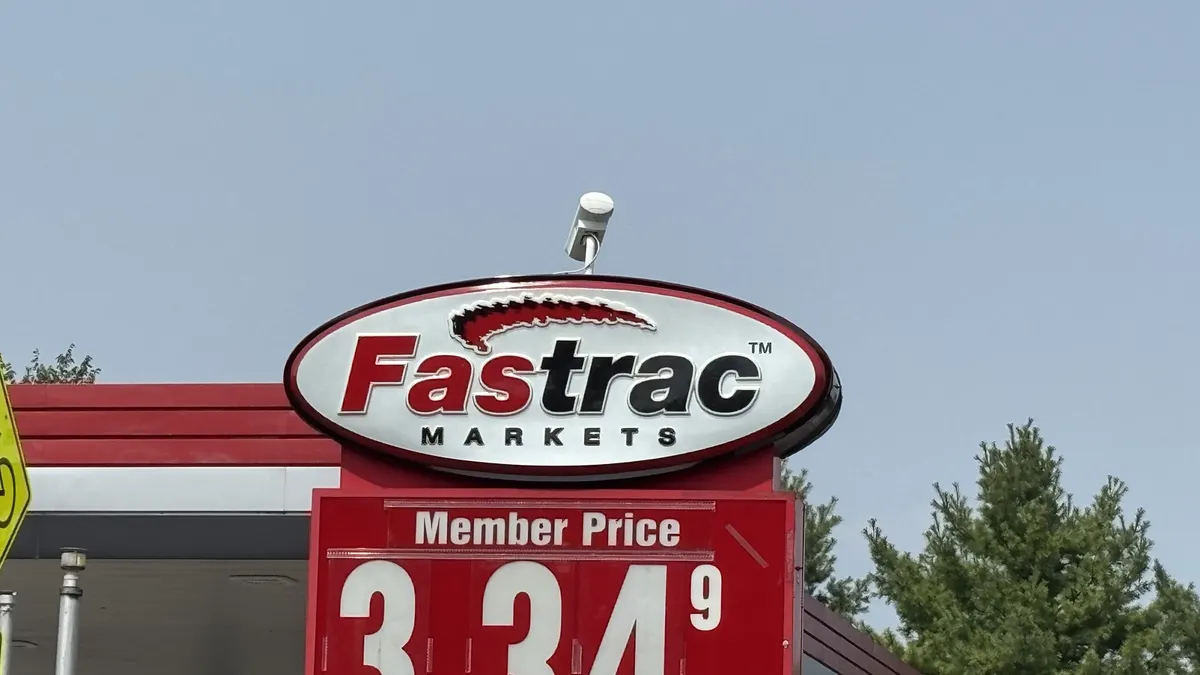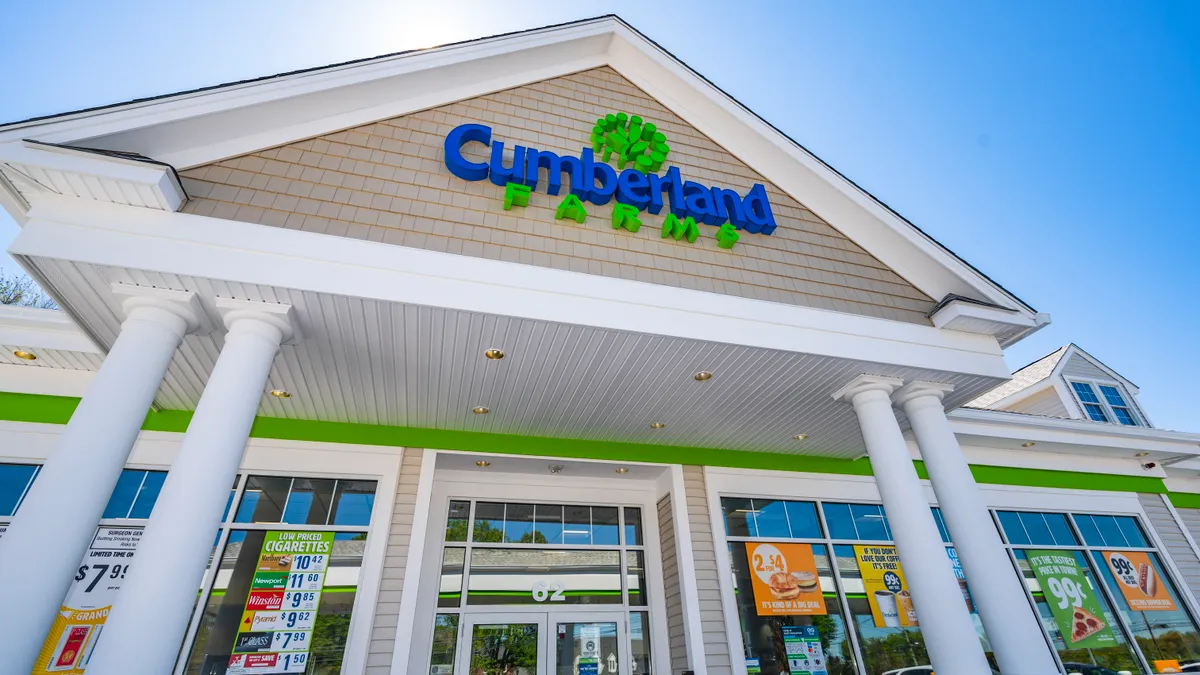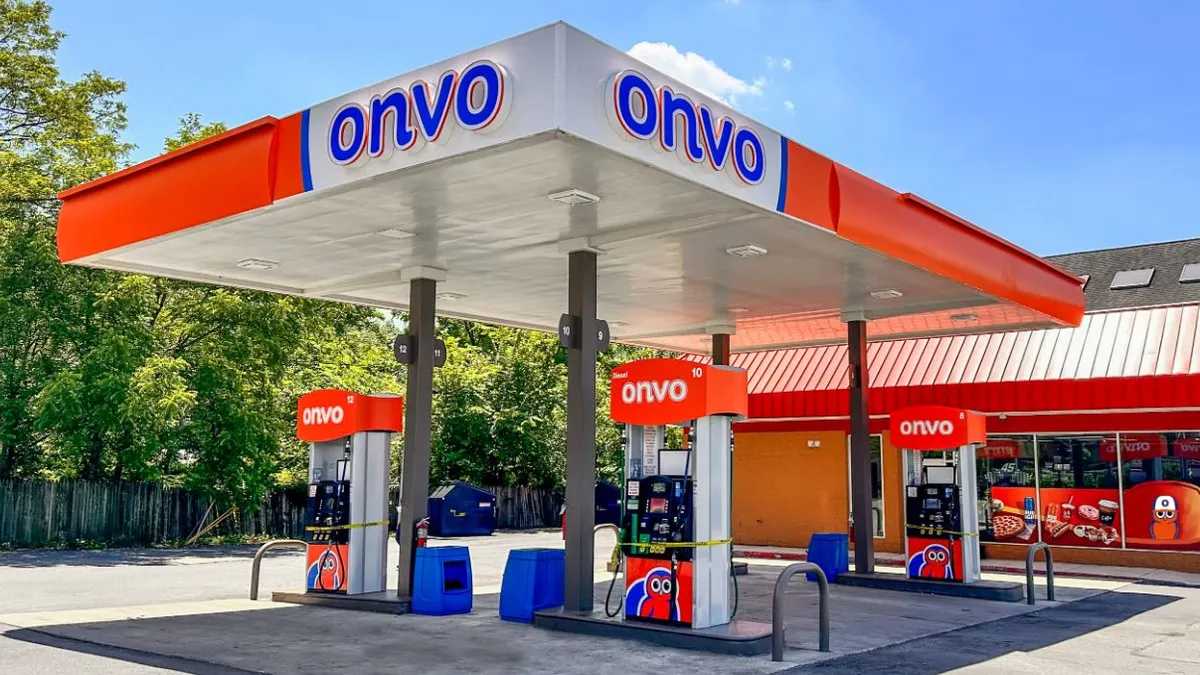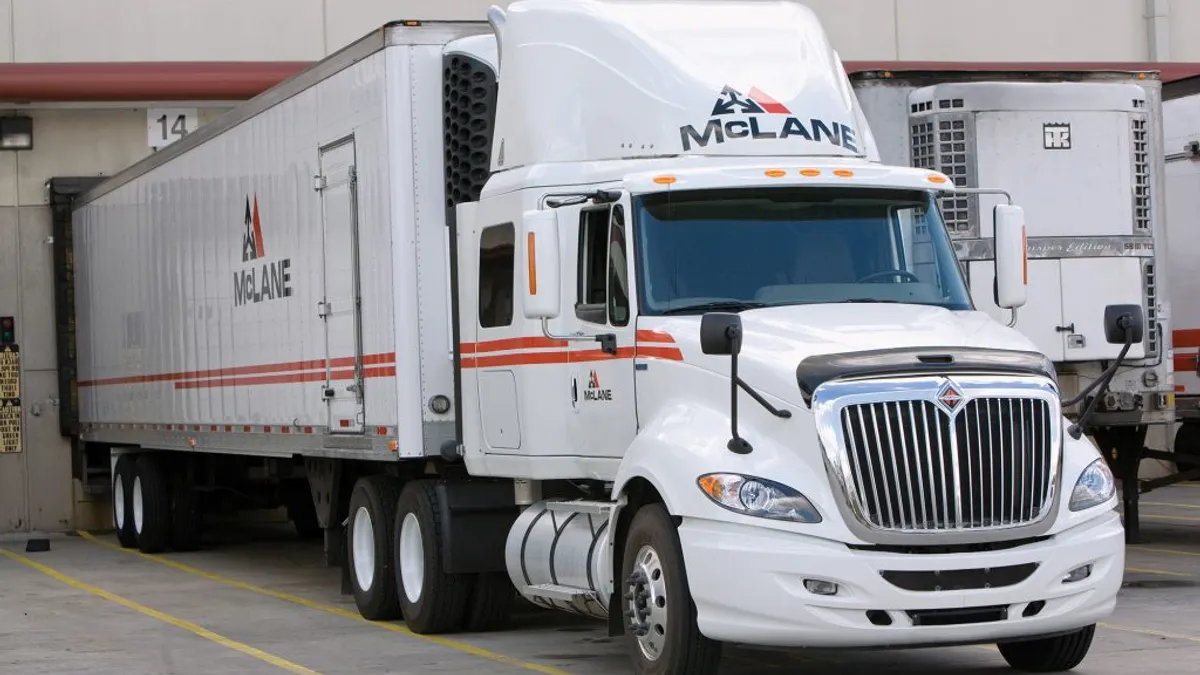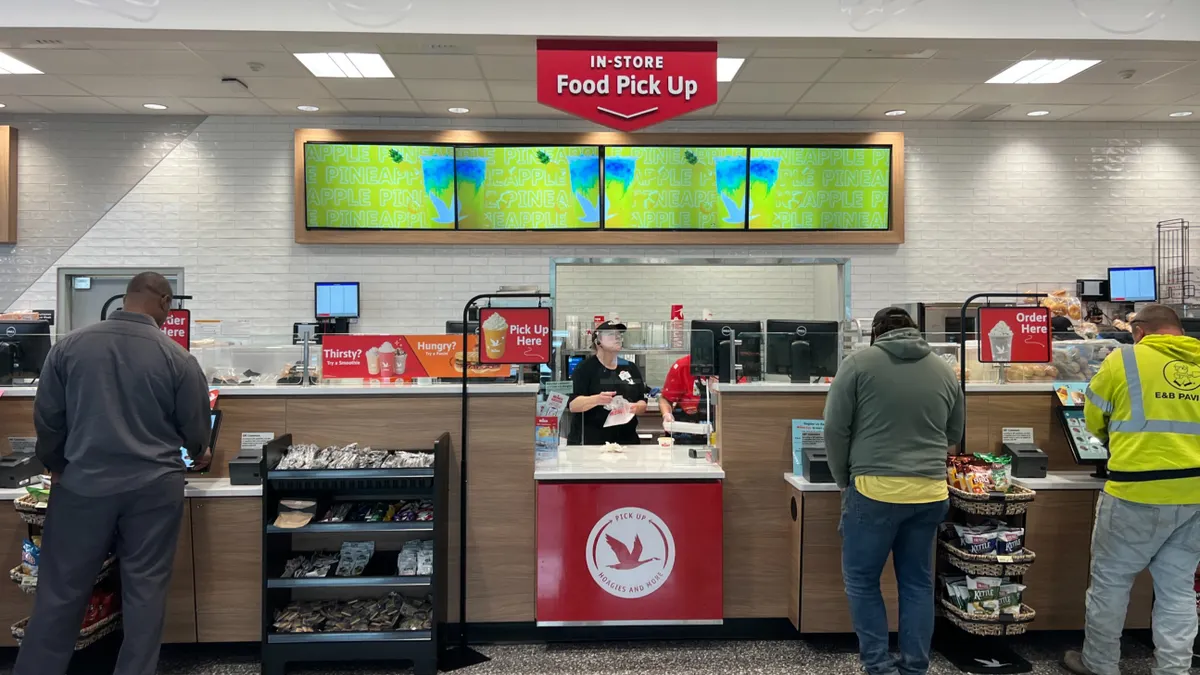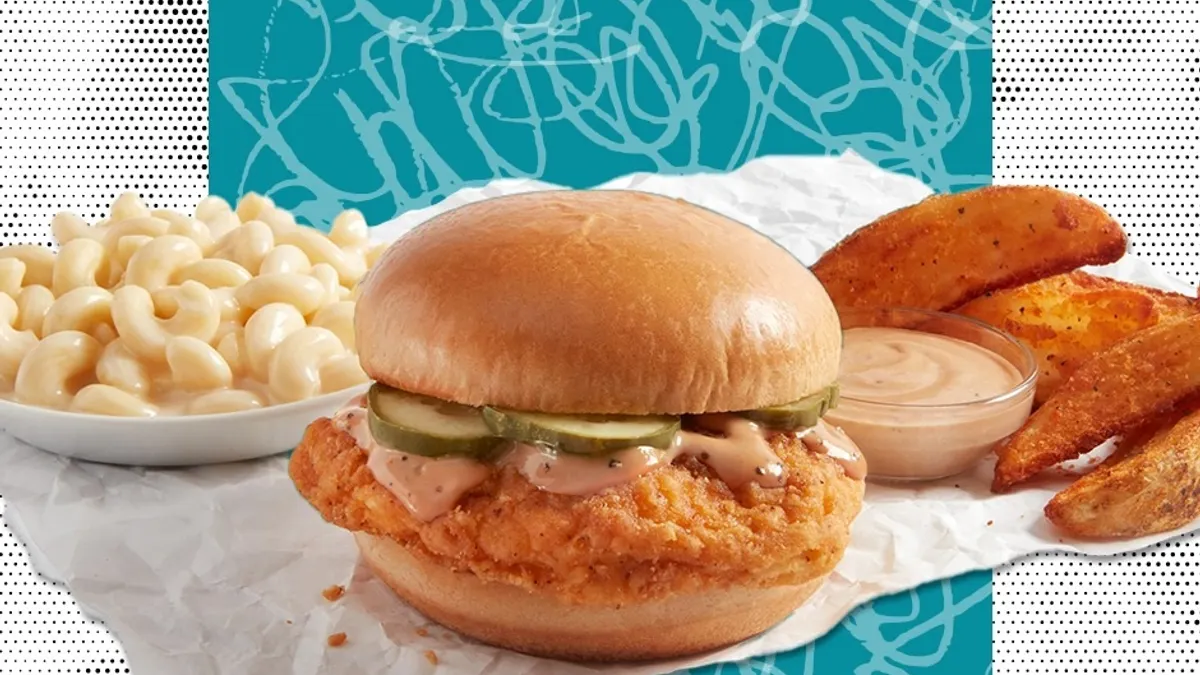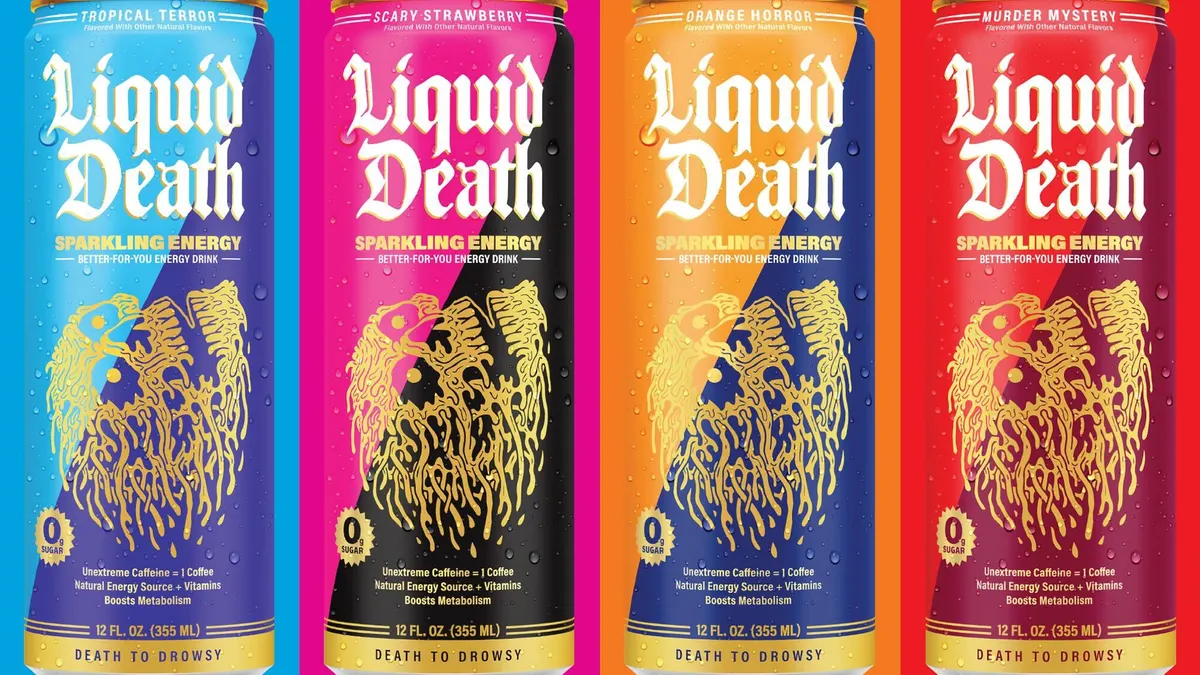Early in 2024, C-Store Dive took a swing at reading the future of convenience retail by sharing nine trends the industry would likely see throughout the year.
Our expert-led predictions were spot on with some topics, like our take on the increase of M&A and the growth of big flavors in foodservice. Others, like a move toward unifying technology and an increase in c-stores upping their value proposition to attract more workers, were slightly off.
With the end of the year now approaching, how well did our crystal ball work? Here are our honest grades for all nine trends that we thought would alter the industry in 2024.
C-stores will look to be more efficient
Grade: B
With their generally low staffing and many 24-hour stores, efficiency is key for c-stores. While we didn’t see an avalanche of new adoptions, 2024 brought a steady stream of automation and technology improvements in areas from freezers to forecourts, shelf planning to toilet seats.
H&S Energy, which doubled its size in March by acquiring Andretti Petroleum, has made plenty of tech upgrades, including improving food safety with automatic temperature monitoring and adding a car wash subscription.
On the East Coast, The Wills Group, which operates the Dash In c-store chain, is now using AI to optimize store layouts and shelf assortments, while Parker’s Kitchen partnered with Titan Cloud on logistics and forecasting.
We weren’t kidding about the bathroom upgrades. RaceTrac installed Washie’s smart toilet seats, which let customers quickly sanitize the seats themselves rather than using paper covers, in stores in seven states.
And perhaps most widely implemented, an increasing number of c-stores partnered with companies like Vroom Delivery and Lula Commerce to add and streamline delivery.
C-stores will work to unify their technology
Grade: D
One of our predictions heading into 2024 was that c-store operators would tap into “unified commerce,” or a more intentional effort to integrate their various hardware and software to streamline customers’ experiences. These efforts, we thought, would span all of a retailer’s technology touchpoints to create as seamless an experience as possible.
Although convenience retailers spent much of 2024 implementing new technologies — from remote-management tools to new fuel forecasting software — the industry made little headway on integrating those services into one unified system.
It shows in the numbers. Ipsos’ 2024 Petro-Convenience Experience Study reported that only 44% of U.S. consumers were highly satisfied with their c-store experience, while 47% of were satisfied with their fueling experience.
Look for big flavor in foodservice
Grade: A+
We also predicted that 2024 would be a big year for bold flavors in convenience stores, which have spent the past several years trying to narrow the gap with QSRs. We were spot on about this one, as big flavors emerged on a regular basis in convenience this year.

Pilot introduced Nashville hot wings and a spicy Italian pizza; 7-Eleven added quesabirria — birria-style beef with cheese — in both a taco and a bowl to its Laredo Taco Company menu; QuickChek debuted spicy chicken, steak and huevos rancheros burrito bowls; Weigel’s launched barbecue bacon cheddar and mushroom swiss smash burgers; Yesway added a pepperoni pizza burrito to its Allsup’s stores; Enmarket introduced sausage breakfast, bacon breakfast, taco beef and chicken fajita burritos; and Rutter’s, which has led the c-store industry’s foray into big flavors, added a cheeseburger sub with fried pickles to its rotating menu.
Yeah, that’s an A+.
C-stores will innovate inside and outside their stores
Grade: A
The convenience store industry was chock full of new looks, fresh prototypes and interesting new approaches this year.
Wawa accounted for a few all on its own, including a drive-thru format that used modular construction as well as its first travel center.
Rutter’s decided to update both the inside and outside with its new large-format prototype, which it broke ground on in May and plans to use for its first store in Virginia. The facade has been redesigned and the interior of the store is built to give shoppers more space and light.
Spinx, meanwhile, opened a retro-designed, food-focused convenience store in South Carolina. And that’s just a smattering of the many companies who went out on a limb with their designs over the past 12 months.
All in all, the industry really lived up to this one.
M&A will continue, with a focus on family businesses
Grade: A-
Mergers and acquisitions dominated the convenience store industry in 2024, continuing a trend of intense consolidation that seems to be gaining steam every year. The only reason this trend doesn’t get a perfect grade is because we predicted that most of the M&A to occur in 2024 would come from smaller, family owned retailers leaving the industry as they struggled to operate amid economic headwinds.
Although we were right in that aspect, it wasn’t just the smaller players being bought out.

Alimentation Couche-Tard — owner of Circle K convenience stores — agreed to acquire GetGo Café + Markets 270 c-stores. Fomento Económico Mexicano S.A.B. de C.V. (FEMSA), owner of Latin American c-store giant Oxxo, acquired Delek US Holdings’ 249 locations. 7-Eleven bought out the remaining 204 Stripes c-stores in the U.S., while Casey’s General Stores purchased CEFCO Convenience Stores’ 198 locations.
EV momentum will moderate
Grade: B
When the electric vehicle charging revolution didn’t happen as fast as many were hoping, experts said convenience stores would slow down their electrification plans. And they did — to a point.
Some companies with existing EV charging programs continued growing theirs. Love’s, for instance, passed 100 total chargers. Applegreen announced plans to double its EV infrastructure in New York, while RaceTrac introduced its charging solution to the Dallas-Fort Worth area.
While new program launches slowed, they didn’t go away entirely. Kwik Trip announced it would launch a new branded program, Kwik Charge. And when California grocer Gelson’s introduced its very first c-store, the forecourt didn’t have pumps — it had chargers.
Retailers will move toward Loyalty 2.0
Grade: B
Coming into this year, we predicted that c-stores would progress towards what experts called “loyalty 2.0.” In other words, they would build up their rewards programs to be hyper-personalized to each member.
Indeed, we saw several convenience retailers do so, from RaceTrac and QuickChek to Yatco and Nisqually Markets. All of these companies added personalized elements to their loyalty programs in 2024, from new marketing campaigns to discounts.
But it’s unclear how much of an impact these upgrades made. The industry continued to lag in loyalty participation in 2024, with the leading convenience retailers only adding an average of 36 new members per location each month, compared to 110 for QSRs, according to Paytronix’s 2024 Loyalty Trends Report.
However, that same report showed that c-stores in the upper half of loyalty transaction share see at least 80% of their members returning every month. By comparison, QSRs at the 90th percentile and above for loyalty transaction share saw 62% of their loyalty members returning monthly.
It’s clear convenience retailers have a hard time attracting new loyalty members. But once a member signs up, they usually stay. C-Store Dive will be watching to see how these programs evolve in 2025.
Beverage innovation will be big
Grade: B
Experts last year pointed to “hybrid” drinks that bridged multiple categories or well-known brands launching fresh products.
C-stores did okay on that front in 2024 but didn’t set the world on fire. Mountain New made two frozen splashes with c-stores, offering a frozen version of its annual Voo-Dew mystery flavor at Circle K in October and tapped 7-Eleven for its Infinite Swirl flavor and frozen version of Freedom Fusion.
Other retailers made updates to their beverage programs. For instance, OnCue updated the beverage assortment at its latest store, boosting the coffee and caffeinated cold drink arrays.
EG America managed an A in this category though, taking advantage of a growing trend of “dirty” soda to draw aficionados to its stores to mix their creative concoctions.
C-stores will focus on their company value proposition to attract employees
Grade: C+
The labor bug continues to infect the convenience store industry as tight employee pools and a general disinterest in working at a c-store persist. Heading into 2024, experts told us that more convenience retailers would tout their purpose as an organization — a story or mission that aligns with their community — to attract workers instead of just highlighting perks and benefits.
Some operators certainly did this. Sheetz became the first employer in Pennsylvania to implement a program aimed at helping people with disabilities pursue competitive wages and stable career paths. Casey’s launched a new “internal job fairs” program that focuses on helping team members learn more about creating their ideal career path. Love’s Travel Stops & Country Stores began offering employees tuition-free education and skill development programs.
The reason this prediction gets a C+ is because the industry didn’t see enough of these initiatives. Many retailers still focused on perks-driven benefits in 2024 over mission-driven reasons to join their companies.




